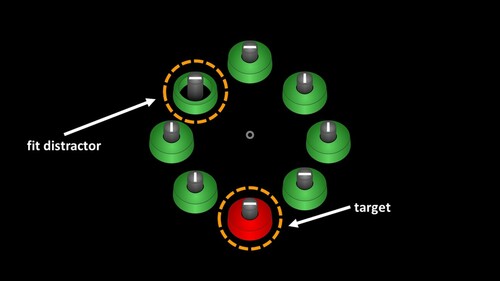Figures & data
Figure 1. Sketch of a display with colour target and fit-singleton distractor used in Experiments 4 and 5 of Goller, Choi, et al. (Citation2020). Participants had to search for the colour-defined (e.g., red) target and reported the orientation of the bar (whether horizontal or vertical) on top of the piston surrounded by the target cylinder.

Figure 2. An amended version of Luck’s et al. (Citation2021) . Here, we included the influence of long-term (skill) memory of, for example, language on control states such as explicit goals and implicit learning. Critically, the present figure illustrates influences of long-term (skill) memory on both feature and spatial gain control, as well as its interactions with working memory and selection history. Similar to working memory and selection history, we assume that long-term (skill) memory can exert both an enhancing and inhibiting influence on feature and spatial gain control. Different from working memory and implicit learning, skill memory is concerned with the scheduling of and switching between different control states such as through implicit learning and explicit goals. This is indicated by the arrows from long-term skill memory to the other control functions. For this purpose, long-term skill memory also monitors the success of the other control functions. This is indicated by the arrows from working memory and selection history to long-term skill memory.

